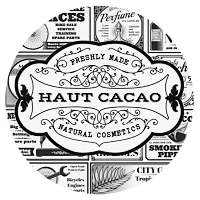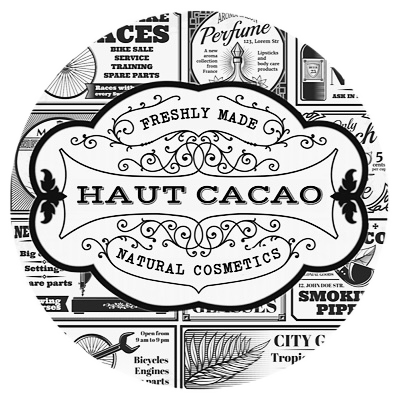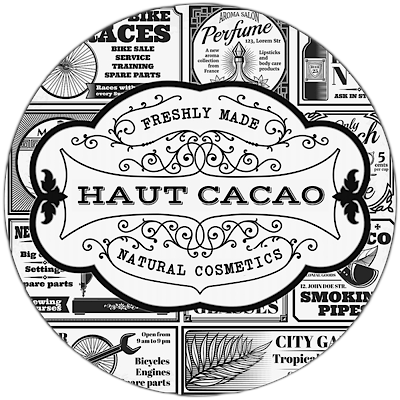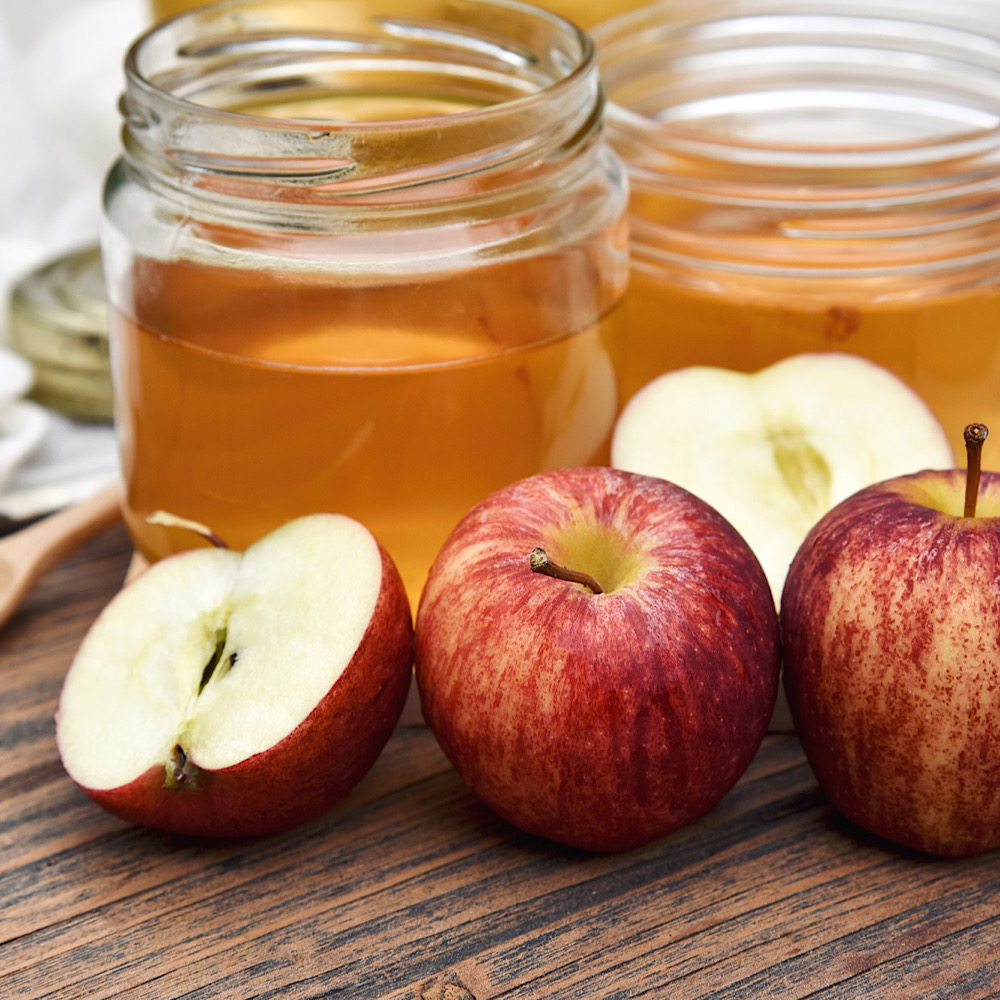As a human society on Earth, we have our share of real problems and challenges, like poverty, famine, lack of fresh water, air pollution, and environmental destruction, that cause all too many people to be stressed, overwhelmed, and ill today. This is why one of the saddest and most unfortunate things is when we create and add unnecessary stressors based on faulty perceptions or exaggerated fears to the mix. Yet this is exactly what is all too common in the digital information age of the internet today, and disseminated by so many people, groups, and organizations, both consciously and unconsciously.
One of the areas where this has become so prevalent is in the field of health and nutrition. This is exemplified by the amount of diets that are propagated today, the amount of food fads, and with them innumerable food fears. It appears everyone has an opinion about what will cure and help you or hurt and kill you, yet so little of this is grounded in wisdom, logic, and quality science. Most is based on a bunch of facts taken out of context or exaggerated to promote or achieve some particular agenda. This, in turn, leaves many people jumping around from diet to diet, avoiding this food while fixating on that food, all the while hoping to find the solution to their health and weight problems or the magic bullet that will guarantee their health and longevity. Sadly, such an approach rarely leads to effective and sustainable solutions. At best, it provides some temporary relief or a welcome change, but unfortunately it is often followed by a regression that takes you back to square one or creates a new set of problems. In the end, such rides on the bandwagons of dietary fads can leave people feeling more confused, disappointed, overwhelmed, pessimistic, hopeless, and cynical about the value of healthy eating altogether.
A popular example of such dietary fads and fears that have surfaced in recent years deal with compounds found in whole natural plant foods known as lectins, phytates/phytic acid, and oxalates/oxalic acid. These substances are most picked on and criticized by promoters of Paleo/Stone Age, Blood Type, Keto, Low-Carb, and Lectin-Free diets. From articles on blogs to videos on YouTube, the sensationalized, fear-ridden content is likely to leave you convinced that these compounds are all bad for you, responsible for your health problems, and avoiding them is the solution to health and healing. But how valid and factual is such information? As it often goes with content like this, not very, and unfortunately the diets that advise against eating these compounds have created a misguided fear about eating healthy foundational foods like fruits, vegetables, grains, and legumes.
Thus, as part of this guide I would like to help you understand where such ideas come from, why they exist, and how to see beyond their faulty guidance. It is my intention to empower you to understand these substances in a holistic manner, which will help you make the best choices regarding them for your health.
What are Lectins, Phytates, and Oxalates?
First off, if you are completely new to these terms, here is a little background about them, what foods they are found in, and why they have been a source of concern and controversy:
Lectins
Lectins are naturally occurring proteins, which are found in most plants. They are protective mechanisms for plants against insects and disease, and are not digestible for us. There are many types of lectins; some are considered worse than others, but in general they are blamed for anything from flatulence (gas) and digestive issues to leaky gut, immune and inflammatory issues. Foods that are targeted as ones to avoid on lectin-free diets include: beans and legumes, grains, nuts and seeds, certain fruits, and nightshade vegetables like tomatoes, potatoes, bell peppers, and eggplant.
Phytates (Phytic Acid)
Phytates (phytic acid) are naturally occurring antioxidant compounds found in many plant foods that are botanically considered as seeds. Thus, they are present in grains, legumes/beans, nuts, and seeds. Plants use phytates as an energy source for the sprouting seed; when a seed sprouts, the phytase enzymes break down the stored phytates. Phytates are commonly referred to as “anti-nutrients” because they can bind to certain dietary minerals including iron, zinc, manganese, and calcium, and slow or impede their absorption, and fears have been raised about them causing mineral deficiencies.
Oxalates (Oxalic Acid)
Oxalate or oxalic acid is a naturally occurring acid found in many plant foods, and can also be made by our human body. It can accumulate in plants and our bodies as a soluble oxalate or insoluble calcium oxalate crystals. Like phytates, oxalic acid is often considered an “anti-nutrient” due to its potential to bind to certain minerals, most specifically calcium, and can pose a risk to people with kidney stones and kidney disease. (For optimal kidney health tips refer to the resources at the bottom of this guide.) Oxalic acid is highest in foods like: spinach, Swiss chard, beet greens, and other leafy greens, rhubarb, many nuts and seeds, cacao (chocolate), tea and coffee, soy, and some fruits and grains.
How Your Health and Eating Habits Factor In
It is important to point out that levels of lectins, phytates, and oxalates vary not only in different foods, but even within the same kind of food. For example, levels of oxalates can vary in plants based on the season, soil, location, how they are grown, etc. This is just one of many reasons why our choices should never be solely guided by any reference numbers, and to always consider the number within a variable margin of error. Also, different people will experience and metabolize these substances differently based on their state of health. In general, bodies that are highly out of balance and diseased due to poor diets, stress, toxicity, and unhealthy lifestyles are likely to be more impacted by any substance, good or bad. In such cases, it is often not the substance itself that is the problem, but the fact that the body has lost its ability to regulate itself properly. Thus, an elimination diet and lifestyle changes may be necessary at such times to help the body heal and rebalance, at which time we can return to the normal eating of any whole plant foods.
Most people will gain many more health benefits than any possible harm by eating foods that contain lectins, phytates, or oxalates.
Neither lectins nor phytates nor oxalates are inherently bad or a problem when we eat the foods that contain them in a reasonable manner. This means eating them based on common sense, such as cooking what needs to be cooked and not exaggerating any one food in our diet, but enjoying a basic variety of different foods. For example, nature clearly shows us that grains and beans in their dry form are unpalatable for us, and one of the fastest ways to destroy our teeth if we try. This is where practices such as soaking, sprouting, cooking, and/or fermenting are the reasonable things to do in order to enjoy these foods. Nuts and seeds, although softer and possible to be eaten in their dry, raw forms, also most benefit from being soaked to bring the dry, dormant “seed” back to life. This activates its most beneficial properties for us, while it removes any nutrient inhibitors. As for fruits and vegetables, most of them are ideal in their raw forms and perfectly created by nature for our benefit just as they are. Our only job then is to eat those that agree with our body, eat them in season, eat fresh and ripe specimens, and rotate through different fruits and vegetables regularly, rather than fixate the diet on any one of them.
Now let’s add another important piece to this discussion for the most complete picture. Not only has research shown that these substances actually have benefits for us, but the foods that contain lectins, phytates, and oxalates are amongst the healthiest foods we can possibly eat.
Fruits, vegetables, grains, legumes, nuts, and seeds make up the foundation of healthy eating for optimal human health. These whole plant foods have been shown over and over again to be the most protective, preventative, and healing when it comes to any and all acute and chronic diseases, including infections, heart disease, diabetes, and cancer.
These whole plant foods support optimal function of our immune system, digestive system, cardiovascular system, and nervous system, and are the most anti-inflammatory, acid-alkaline balancing, cleansing, detoxifying, and energy and weight optimizing. Ancient and modern proof aside, just think about it; if not these foods then which should you focus your diet on? Your only other alternative are refined/processed foods and animal foods, both of which are the most problematic food groups, and associated with creating the opposite effects of what whole plant foods provide.
This is where we could end our discussion, and many people do, for whom lectins, phytates, and oxalates are a non-issue. Unfortunately, it is not so simple for others. As I shared with you at the beginning, today there are many convincing headlines, stories, diets, and experts who, for better or worse, will shake the dietary foundation of many people, and introduce all kinds of fears, doubts, and insecurities. While I don’t believe that most people are malicious in their intents, but are genuinely convinced that they are helping others, the truth is that a lot of people, regardless of their education background or academic credentials, share very irresponsible health and nutrition information that creates more harm than good. So why do seemingly equally educated and well-meaning experts see things so differently that leads to so much public confusion and misinformation? This is what we will cover in the next section.
It’s All About Perspective: Reductionist or Holistic
There are several major reasons why we have so much health and nutrition controversy and confusion today. As you probably already know, money and financial gain is one of the biggest. If something can be extracted, isolated, modified, bottled, and sold to you, then it will be marketed to you in a way that makes you feel that you need it and will be better off by having it. Another big reason is status and legacy. The human Ego is very fragile and most people, especially those in academic communities, want to stand out and be recognized for having achieved something unique, special, or meaningful to them. This is most evident in radical theories and diets that try to revolutionize eating in some way. However, the third biggest reason for the confusion and controversy that we have today, and one which most people are not aware of, comes down to perspective.
In any field of science, be that biology, chemistry, or physics, and any field that is based on them like health and nutrition, there are two main perspectives at play: the reductionist and the holistic. This is so critical to be aware of because…
How we see things determines how we understand them, and how we understand them determines the conclusions we are going to make about them.
This is why any two different perspectives typically arrive at two very different conclusions. When we apply this to our everyday lives, in some cases it won’t be a big deal and perhaps only a matter of preference. However, in other cases it is a very big deal and a matter of helpful or harmful information, which leads to health and wellbeing or stress and disease.
The reductionist perspective is based on studying specific parts on their own, and it is the most prevalent one throughout our modern-day society. Reductionist perspectives arose from the Newtonian way of thinking and are based on dissecting things (body, food, world, etc.) into smaller and smaller parts, and then fixating on studying these parts in isolation. While we can gain a lot of detailed information this way, the biggest limitation of such an approach is that it studies things in isolation and misses both, the connections between parts and how they influence each other AND the big picture of how it all works and fits together. This approach is used by conventional medicine and the pharmaceutical industry. It is full of limitations and largely why the medical system is failing people, especially when it comes to preventing and healing chronic diseases. The field of general nutrition and dietetics is also based on this perspective, and is largely why there are so many diets and experts who cannot agree on what healthy eating is supposed to be. As each diet or expert is focused on different details, different conclusions are drawn about what is the best or worst food or diet to adopt.
The holistic perspective is based on studying the parts together, and understanding how they influence each other to make up the whole. As these parts interact, they come together to create what we know as our body, our food, our world, etc. This perspective is the basis of all ancient and traditional healing approaches, like Traditional Chinese Medicine, Acupuncture, Ayurveda, Herbalism, Homeopathy, etc. This is also the perspective of holistic nutrition and wholistic science. It is what helps us to see and understand how everything has a purpose for the benefit of the whole.
For another perspective about this that deals with health and nutrition, hear from Dr. T. Colin Campbell how Scientific Reductionism Detracts from Whole Food, Plant-Based Message
Practical Applications of Reductionist and Holistic Perspectives
To fully understand the importance and consequences of each of these perspectives and their impact on our lives, let’s examine some familiar examples:
A Faulty View of Our Body and Health
One of the best examples that illustrates a how easily a faulty view of our health was accepted over the years has dealt with our tonsils. For many decades the medical community thought that tonsils had no great value or significance. Based on a reductionist perspective, the tonsils were studied in isolation, and thus seen as unimportant and expendable. Routine tonsillectomies were performed at the slightest sign of any problems on millions of children around the world. It wasn’t until years later and thanks to adopting a more holistic view of the body that it was understood that tonsils actually play a very important role in our immune function and other areas of our health, and should not be removed as this creates new imbalances and health risks. A similar view of unimportance was held about the appendix, which today is understood to play an important role in both our immune and digestive health. Wherever we look in the field of health and medicine, the entire reductionist mindset has sabotaged how to perceive and treat diseases, where the focus is on isolating and eliminating individual symptoms, rather than on treating the individual as a whole and the root cause of their expressed symptoms.
Faulty View of Our Food and Nutrients
Faulty conclusions are also made when our food and nutrients are studied in isolation based on reductionist perspectives. One of the most famous, which I also talk about in my book, deals with Vitamin C content in apples. Dr. Rui Hai Liu, a Professor in the Department of Food Science at Cornell University in New York, and his team studied the Vitamin C content of fresh apples. In isolation, as an extract, the apple was found to have a mere 5.7mg of Vitamin C potential, but when studied as a whole food the Vitamin C content was equivalent to 1500mg. Not only that, but a supplemental form of 500mg of isolated Vitamin C may actually act like a pro-oxidant, instead of an anti-oxidant, and cause more harm than good. The study was published in 2000 in the Journal of Nature. This is a classic example of how differently we will see our foods and our supplements depending on whether we take a reductionist or holistic perspective.
Faulty View of Lectins, Phytates, and Oxalates
These faulty views that depend on the perspective we take extend to other compounds in our foods, namely the lectins, phytates, and oxalates. When these are studied in isolation, they are usually reported as having some negative attributes or effects on us, such as being inflammatory. However, when the food that contains them is studied as a whole, it is found to have the opposite or a positive effect.
When we start to examine our food holistically, we find that the very substances that we thought were “bad” actually have a purpose that makes the whole food beneficial.
A perfect example here is the tomato from the nightshade family of plants, which a lot of people fear eating due to its inflammatory lectin connection. However, as a whole food the tomato has an anti-inflammatory effect on the body. This goes back to the work of Dr. Liu mentioned above about how important it is to study the whole food, and not just its parts, for the most accurate view. Otherwise, we are only getting bits and pieces of information that lead to faulty perceptions and conclusions. Yes, in isolation, when studied from a reductionist perspective, lectins, phytates, and oxalates may seem harmful for various reasons. However, as part of the food they are in, like tomatoes, eggplants, bell peppers, potatoes, spinach, grains, beans, nuts, and seeds they, and the whole food itself, are actually helpful and beneficial in numerous ways. All of the different compounds that make up the whole natural plant food work synergistically in a way that has a net beneficial effect for us.
Therefore, it is not reasonable or advisable to avoid healthy and wholesome foods like various fruits and vegetables, grains, legumes, nuts, or seeds just because they contain lectins, phytates, or oxalates, unless you have a legitimate allergy/sensitivity to any of the specific foods or a health condition that necessitates it.
If your body is giving you negative signs and symptoms, and not ones due to the nocebo effect of your negative beliefs about a certain food, then by all means avoid eating it. However, don’t stop eating a healthy food just because you read or heard someone pick on some part of it or blow something about it out of proportion. Do some proper research, develop your critical thinking skills, learn to think for yourself, discern the information you receive with wisdom and reason before you make important decisions, like what you will and will not put into your body. And most importantly don’t fall for sensationalized, exaggerated, bite-sized information based on fear-mongering. Otherwise, you may be removing healthy, wholesome, and highly beneficial foods from your diet for no good reason, and putting unnecessary limits on your diet. In the end, all this makes the process of sourcing, preparing, and eating your food that much more restricted and stressful. Remember, we have enough real problems, stresses, and challenges in this world, don’t add more and unnecessary ones to your life.
How to Reduce Any Risks from Lectins, Phytates, and Oxalates
- Grains: Consume properly cooked whole grains, and ones that agree with your body. Soak as much of your grains as you can before cooking, especially if you have any concerns about lectins or phytates. Avoid all refined grains and processed grain products. If you choose to eat any bread or bread-like products, opt for sprouted and fermented whole grain products, like Ezekiel bread or pure sourdough bread.
- Beans / Legumes: Consume properly cooked beans and legumes, and ones that agree with your body. Soak dry beans for at least 12 to 24 hours before cooking. If you desire raw foods, only some beans/legumes can be safely sprouted, like lentils, chickpeas, mung beans, and adzuki beans, where as some, like red and white kidney beans and black beans, should never be eaten raw or undercooked as they can cause serious health symptoms. If you have digestive issues, avoid processed bean foods and canned beans, and prepare your own beans appropriately by soaking them before cooking.
- Nuts / Seeds: Consume most raw nuts and seeds in their soaked form. Exceptions include chia and flax seeds, which will gel when exposed to water. These can be soaked, but it is not as essential to do so as with other nuts and seeds. Avoid roasted and processed nuts and seeds.
- Fruits and Vegetables: Whether it is ones from the nightshade family or ones that are known for their higher oxalate content, follow the advice shared thus far where you consume any fruit or vegetable that agrees with you and your health needs. People are often told to cook their spinach and other high oxalate fruits and vegetables, but this actually destroys their valuable health benefits and will not fully destroy the oxalate content. Avoid fruits and vegetables that have been processed commercially or are part of processed foods.
We have to think about it this way: nature is here to support us and all other living beings, and nature did not make mistakes in how it produces what it produces. It is we who take the food that is perfectly packaged for us by nature, and refine, process, and denature it in all sorts of ways, which then makes the food work against us. It is we who imbalance our bodies and destroy our health with poor diets full of refined and processed foods, unmanaged stress, and poor lifestyle habits to the point where we cannot eat properly, cannot sleep properly, cannot eliminate properly, and cannot function properly. When we clean up our diets and improve our lifestyles, we begin to heal our bodies so that they can adequately self-regulate again and fully harness their natural self-healing potential.
The foods that are the most legitimate to cause problems that lead to weight gain, poor energy, poor gut health, leaky gut, blood sugar imbalances, kidney stones, acidity, and inflammation that leads to all chronic diseases are:
- Processed/refined sugar-rich foods
- Processed/refined flour-rich foods
- Processed/refined oil-rich foods
- Processed/refined foods with various additives and preservatives
- Diets based on animal foods, namely meat, fish, eggs, and dairy
- Diets based on low amounts of fruits, vegetables, and legumes
- Diets based on high amounts of tea, coffee, or soda, and low amounts of water
Conclusion
Today, we have a world full of people who think they are very smart by knowing all sorts of intricate details about things, when in truth we have lost our wisdom. Wherever we look we are bombarded by details and facts in isolation, facts that are exaggerated, and facts without context, which will always be contradictory, confusing, and overwhelming. This is why today I am personally most guided by, and aim to share professionally with others, the laws of nature, which are timeless, the easiest to observe and experience, and the least likely to steer us in the wrong direction, unlike studies and the many “experts”, that are rife with financial and political conflicts of interest. Nature is not out to get us and it is not working against us. In fact, everything in nature is there to support us, but it is our job to use all that nature provides with wisdom, discernment, and respect. Unfortunately, these are all things that are lacking in our disconnected society today, where we are disconnected from the Self, disconnected from nature, and disconnected from each other. Yet the more we eat naturally and live naturally, the more in alignment we will be with our human nature. This does not mean that we should live like people lived thousands of years ago, but live based on the wisdom of nature, wisdom of our body, and wisdom of our food, rather than based on the unnatural rules of human minds that are prone to having very faulty and limited views of reality.
In summary, whole plant foods, as a whole group, are naturally anti-inflammatory and most beneficial, healing, protective, and preventative, and there is no need to fear or eliminate any of them from the diet unless they are processed or refined or unless we have a valid allergy or need to avoid them.
Healthy eating can be and should be simple. Get your foundation right by focusing on whole plant foods, and then, within that foundation, focus on consuming whatever whole plant foods most agree with you at any given time from the major plant food groups: fruits, vegetables (starchy and non-starchy), grains, beans/legumes, and nuts/seeds. Don’t get caught up on details, don’t adopt the fears and insecurities of others, and don’t sweat the small stuff. Instead, focus on creating a meaningful life that is based on your definition of balance, happiness, and success.
Resources for Further Understanding:
1. The book The Plant Paradox, which advocates for lectin-free eating has been shown to be based on very faulty science:
- Video: Why Dr.Gundry’s The Plant Paradox is Wrong
- Video: Nutrition in Popular Media — Examining The Plant Paradox
- Video: Debunking The Plant Paradox
- Article: Commentary on The Plant Paradox
2. The beneficial sides of lectins, phytates, and oxalates, including protection from and treatment of chronic diseases like diabetes type 2, heart disease, and cancer:
LECTINS
- Video: Are Lectins in Food Good or Bad for You?
- Article: The Real Story on Lectins
PHYTATES
- Video: Phytates for the Prevention of Cancer
- Video: Phytates for the Treatment of Cancer
- Video: Phytates for Rehabilitating Cancer Cells
- Video: Phytates for the Prevention of Osteoporosis
OXALATES:






